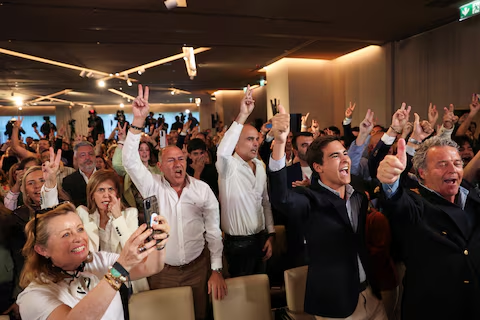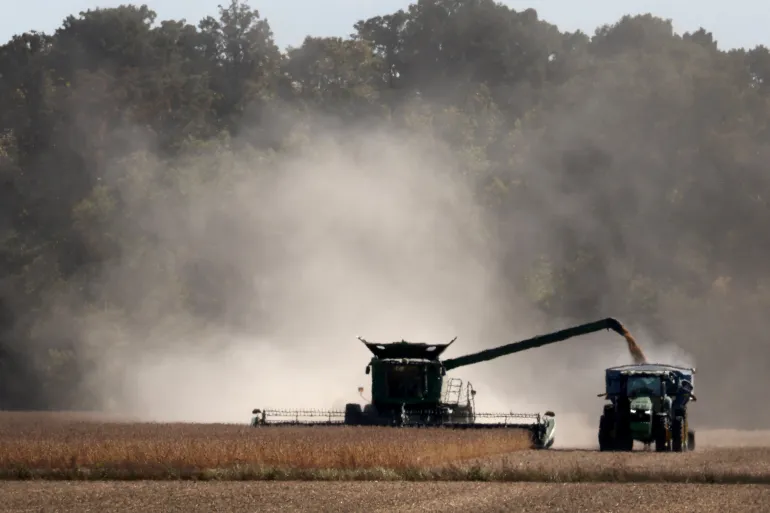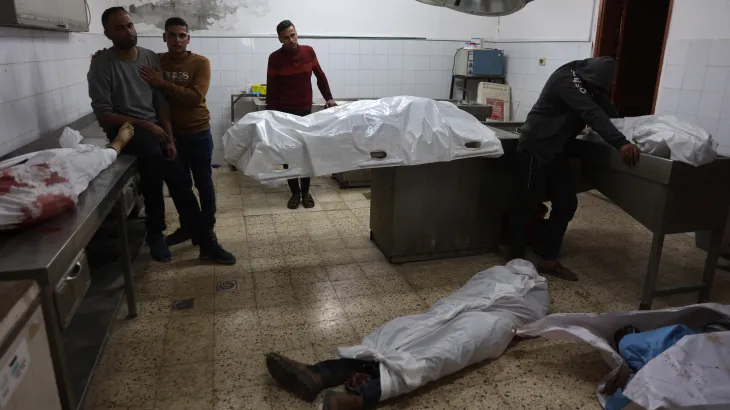Portuguese voters went to the polls on Sunday in a closely watched parliamentary election that analysts warn may not produce a stable government, deepening the country’s political uncertainty amid rising living costs, sluggish growth, and ongoing corruption concerns.
The snap election was triggered in March following the resignation of Socialist Prime Minister António Costa, who stepped down after prosecutors opened an investigation into alleged irregularities involving lithium mining and hydrogen projects—though Costa has denied any wrongdoing. His departure ended a decade-long tenure that saw both economic stability and periodic scandals.
With no party projected to win an outright majority, the election is expected to yield a fragmented parliament, potentially forcing a fragile coalition or minority government. The center-right Democratic Alliance (AD), led by Luís Montenegro, and the incumbent Socialist Party (PS), now under the leadership of Pedro Nuno Santos, are locked in a tight race.
Early polls suggested the AD held a slight lead, but the far-right Chega party, led by André Ventura, has surged in recent weeks and may play a kingmaker role. Chega has campaigned on a platform of anti-immigration, nationalist rhetoric, and promises to crack down on corruption and political elitism—appealing to voters frustrated with the status quo.
“The country is tired of corruption, tired of empty promises, and ready for real change,” Ventura told supporters during a final rally in Lisbon. Chega’s rising popularity has alarmed moderates and could complicate coalition-building efforts, particularly if the Democratic Alliance is pressured to work with Ventura’s party.
Pedro Nuno Santos, aiming to continue the Socialist Party’s legacy, focused his campaign on social welfare, housing reform, and defending democratic institutions. He warned voters against supporting the far-right and called for a “progressive front” to protect Portugal’s European values and inclusive governance.
“No government can be stable if it rests on division and hate,” Santos said in a televised debate, referring to Chega’s controversial statements on minorities and immigrants.
Portugal’s constitution bars pre-election coalitions from being formally declared, meaning that negotiations to form a government could take weeks. President Marcelo Rebelo de Sousa has urged all parties to act with responsibility and avoid political paralysis. “Portugal needs stability, not another cycle of division,” he said in a national address.
Economic concerns have loomed large throughout the campaign. Inflation remains stubbornly high, and the housing crisis continues to affect young voters and low-income families, especially in Lisbon and Porto. Public sector strikes and discontent over healthcare shortages have added to the pressure on mainstream parties to deliver tangible results.
The election has also drawn international attention due to its potential implications for European politics. Portugal has long been seen as one of the EU’s more stable southern democracies, and a rise in far-right influence could shift its alignment within the bloc, particularly on migration and fiscal policy.
Voter turnout is expected to be moderate, with political fatigue and disillusionment cited as key reasons for potential abstentions. Analysts warn that low engagement may favor smaller, more mobilized parties—further complicating post-election negotiations.
If no party or alliance secures a workable majority in the 230-seat parliament, Portugal could face prolonged political deadlock, risking delayed policymaking and budget gridlocks. Observers note that past minority governments in Portugal have managed to function with negotiated parliamentary support, but the increasing polarization could test that model.
Final results are expected late Sunday night or early Monday. Until then, Portugal waits anxiously, hoping for clarity but bracing for a prolonged period of uncertainty as the country seeks a path forward through political fragmentation.



